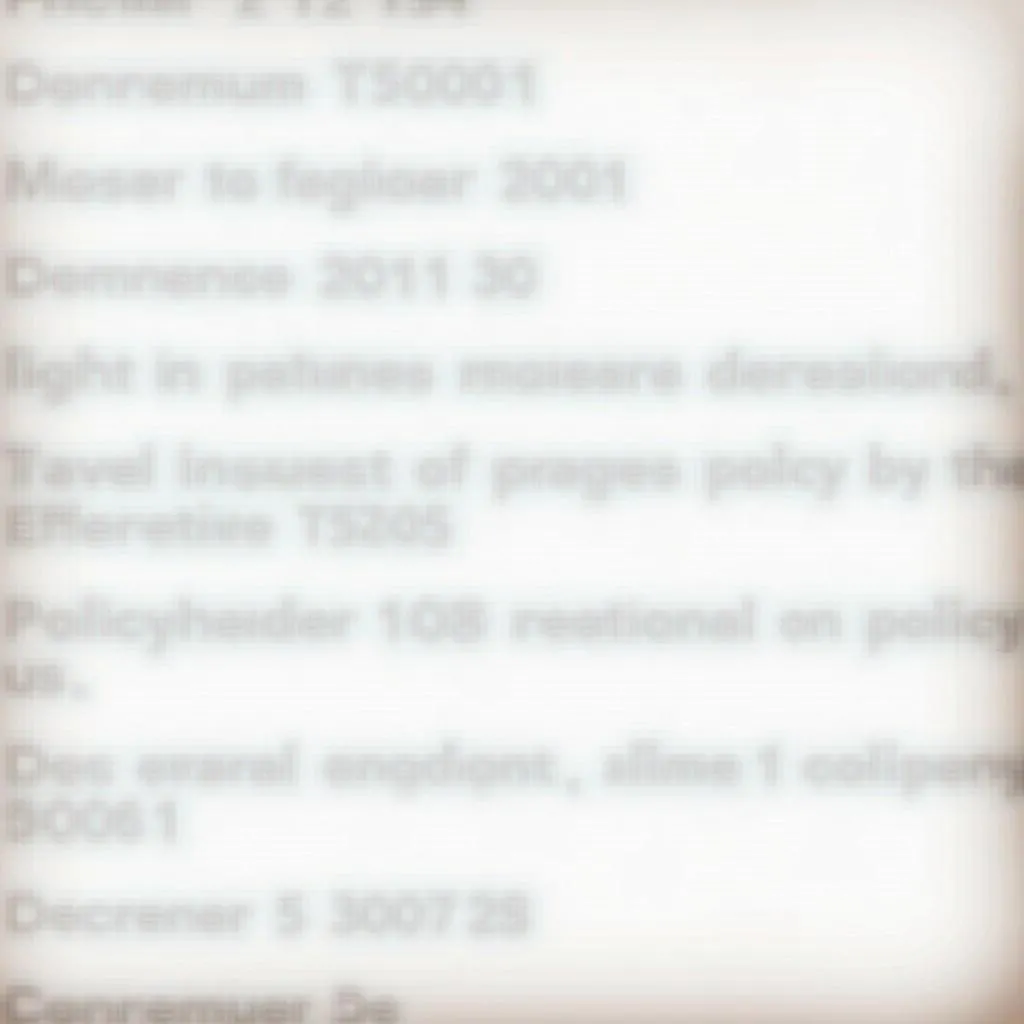Have you ever booked a dream vacation, packed your bags, and then wondered, “Wait, when does my travel insurance actually kick in?”. Don’t worry, you’re not alone! Understanding the start and end dates of your travel insurance policy is crucial for a worry-free trip. Let’s unravel the details of travel insurance coverage periods and ensure you’re protected every step of the way.
Understanding Your Travel Insurance Coverage Period
Travel insurance policies differ from regular health insurance in that they cover a specific period, typically the duration of your trip. This period is clearly defined in your policy documents.
When Does Travel Insurance Start?
Generally, travel insurance coverage begins on the effective date stated in your policy. This date is usually:
- The date you purchase your policy: Many policies become effective immediately upon purchase, especially if you’re buying close to your departure date.
- A specific date you choose: Some policies allow you to select a future effective date, which is beneficial if you’re buying insurance well in advance of your trip.
Imagine you’re planning a trip to the vibrant city of Bangkok. You purchase your travel insurance on June 1st for a trip starting on June 15th. Your policy may come into effect immediately on June 1st, offering you coverage for any unforeseen events that might disrupt your trip before you even leave home.
 Travel Insurance Policy Document
Travel Insurance Policy Document
When Does Travel Insurance End?
Similar to the start date, your travel insurance policy will also have a predetermined expiration date. This is typically:
- The date you return home: Coverage usually ends on the scheduled day you return from your trip.
- A specific number of days after purchase: Some policies offer coverage for a fixed number of days, regardless of your travel dates.
Let’s say your Bangkok adventure ends on June 25th, and you’ve purchased a policy that aligns with your travel dates. Your coverage will typically end on June 25th, the day you’re scheduled to return.
Factors Affecting Coverage Start and End
While the above guidelines are standard, a few factors can influence the exact start and end times of your coverage:
- Time of day: Some policies might specify an exact time your coverage starts and ends, such as 12:01 AM.
- Policy type: Different types of travel insurance policies (e.g., single trip, annual, multi-trip) will have varying coverage periods.
- Travel delays: If your trip is delayed due to unforeseen circumstances, like a flight cancellation, your policy may offer coverage for a certain period beyond your original return date. However, this is subject to the specific terms of your policy.
 Travel Insurance Coverage for Flight Delay
Travel Insurance Coverage for Flight Delay
Common Queries About Travel Insurance Coverage
Here are answers to some frequently asked questions about when travel insurance starts and ends:
Q: If my flight is delayed, and I miss my connecting flight, am I covered?
A: Most travel insurance policies include coverage for missed connections due to covered reasons, such as airline delays. However, checking the “trip delay” benefit in your policy is essential to understand the extent of coverage and any time limits that apply.
Q: I need to extend my trip. Can I extend my travel insurance coverage?
A: Yes, you can often extend your coverage, but you usually need to contact your insurance provider before your original policy expires. They will guide you through the process and any potential costs.
Q: I’m traveling to multiple destinations. Is my entire trip covered?
A: As long as all your destinations and travel dates fall within the effective dates stated in your policy, your entire trip should be covered. It’s always best to double-check your policy documents or contact your insurer for confirmation.
Choosing the Right Coverage
Selecting the right travel insurance for your needs is crucial. Here’s what to consider:
- Trip duration: Opt for a policy that aligns perfectly with your travel dates.
- Destination: Some destinations might have specific requirements or higher risks, necessitating specific coverage.
- Activities: If you’re engaging in adventure sports or activities that carry inherent risks, ensure your policy covers them.
- Medical conditions: Declare any pre-existing medical conditions to your insurer to ensure you have adequate coverage.

